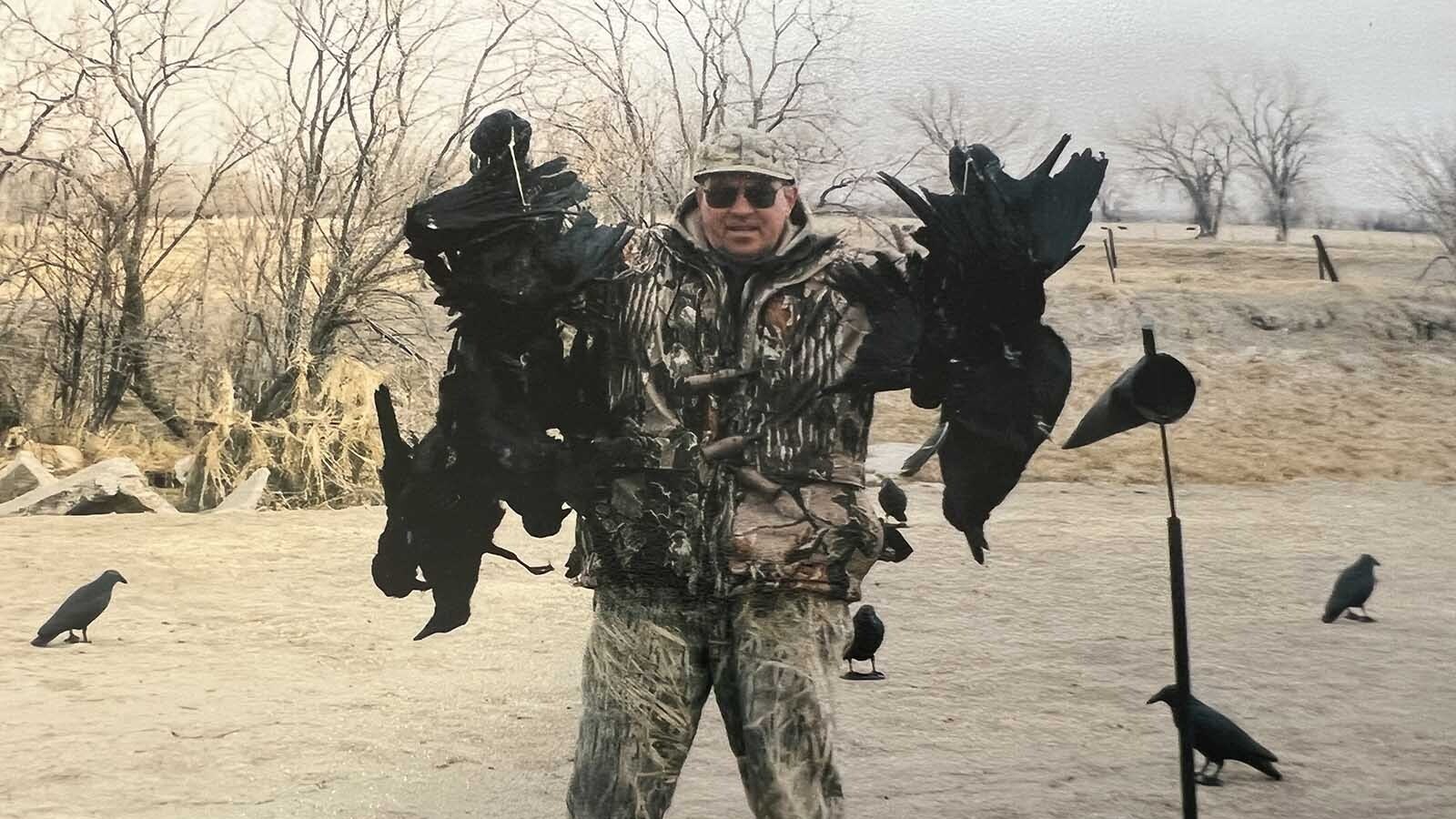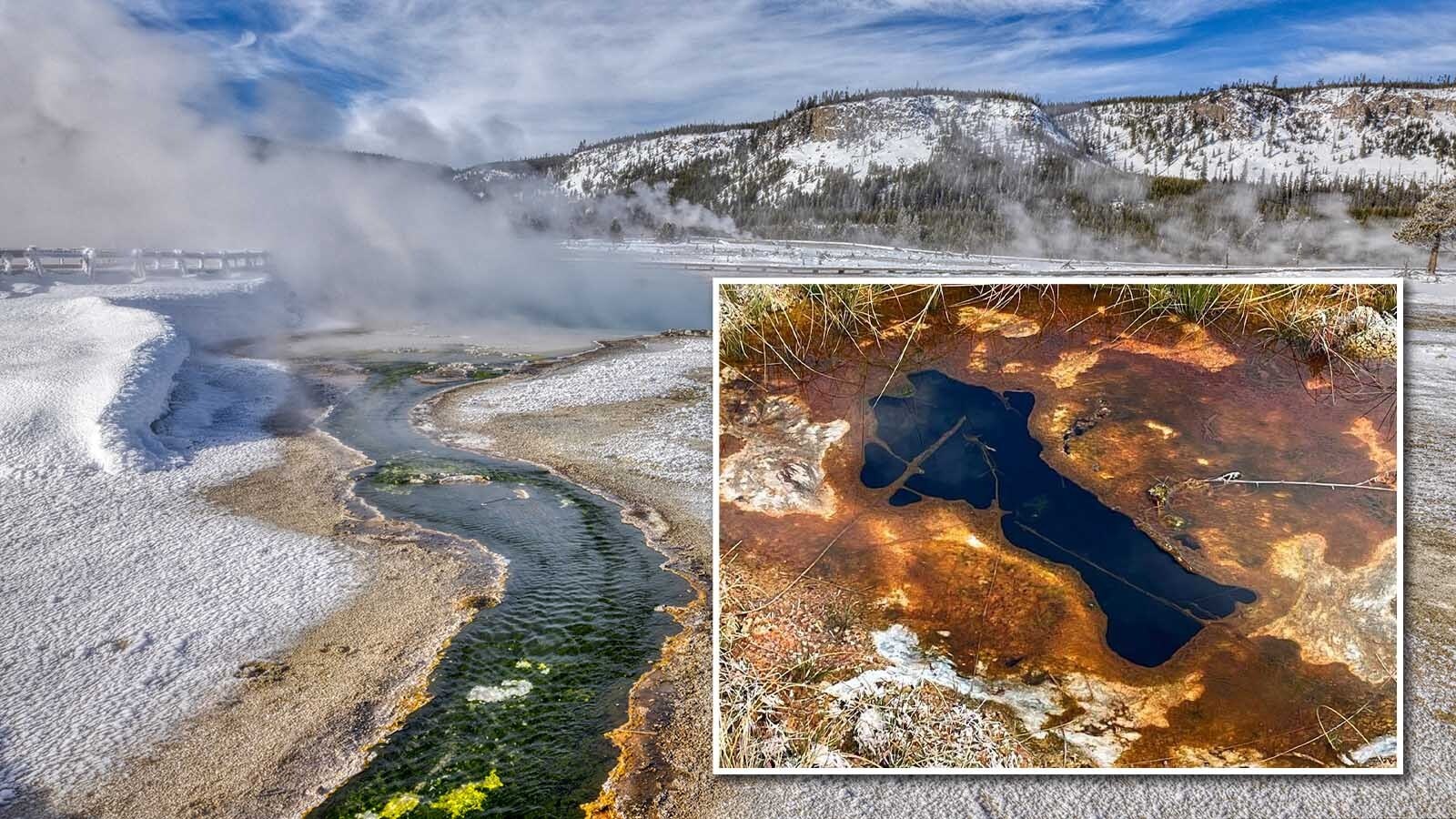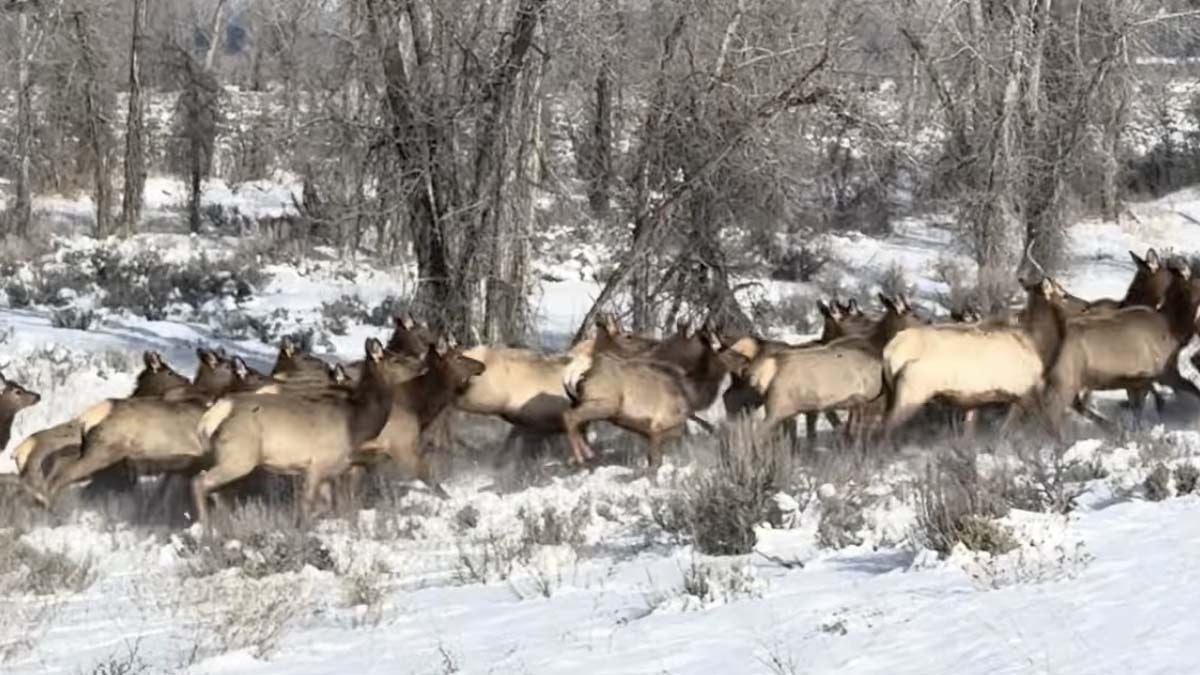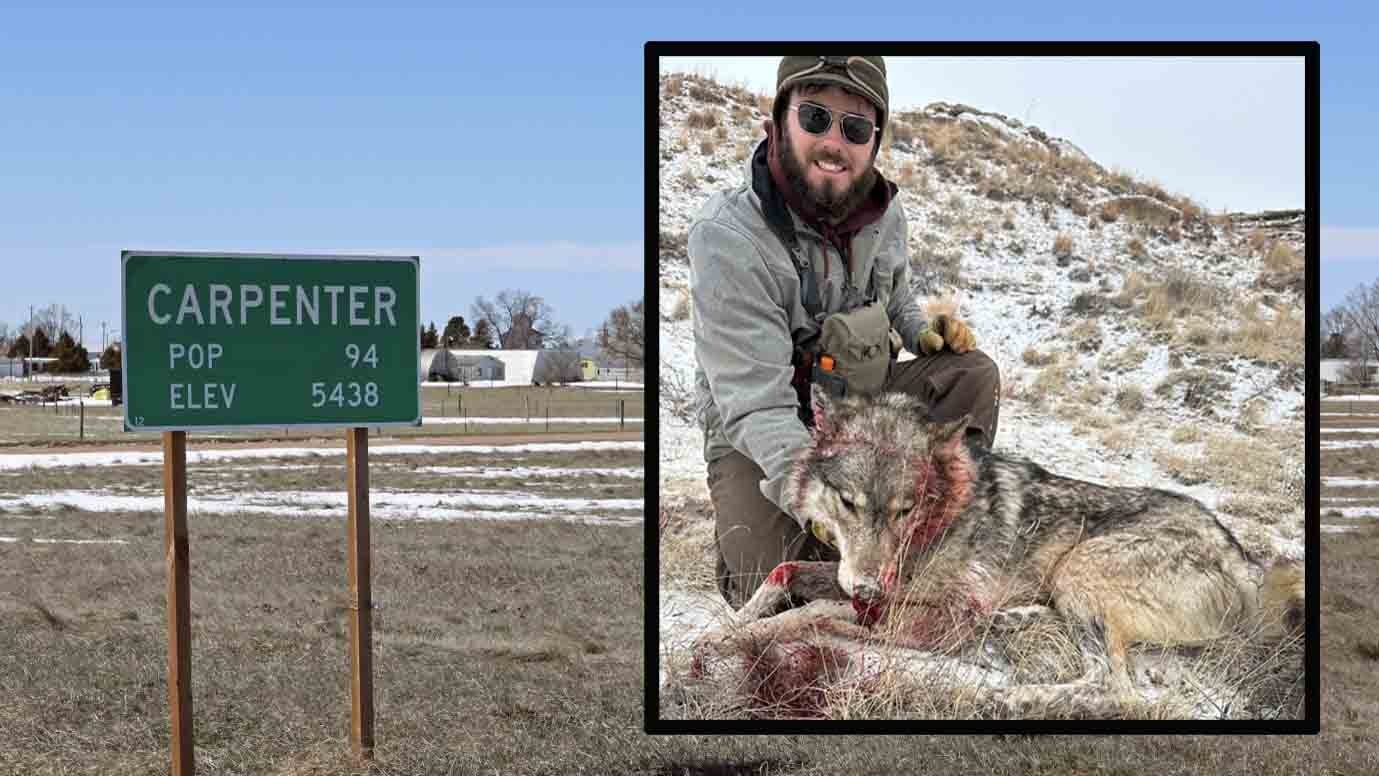Prompted by what they claim is apathy over a wolf being run down with a snowmobile, tortured and killed in Sublette County, environmental and animal welfare groups are suing to have wolves relisted as an endangered species in Wyoming.
“You can dry a straight line from the Cody Roberts wolf-crushing incident to us filing this legal action,” Wayne Pacelle, spokesman for the Washington, D.C.-based Animal Wellness Action told Cowboy State Daily.
Animal Wellness Action and another D.C.-based group, Center For a Human Economy, filed a lawsuit July 2 in U.S. District Court in Missoula, Montana. The groups claim that the U.S. Fish and Wildlife Service is liable for refusing to place wolves in Wyoming, Montana and Idaho back under endangered species protection.
If the lawsuit succeeds, it could end wolf hunting in Wyoming, Montana and Idaho, which has been going on since 2011-2012.
A similar legal action recently shut down wolf hunting in the Upper Great Lakes states, Pacelle said, so he’s confident the effort will succeed in the Northern Rockies region.
Can Federal Land Managers Step In?
However, retired USFWS game warden Tim Eicher of Cody said he expects the lawsuit to fail, as have previous efforts to get wolves relisted in the Northern Rockies.
“I don’t see relisting in Wyoming, Montana and Idaho as happening,” he said.
Instead, if reforms are needed to wolf management policy, that must take place at the state level, he said.
And if running wolves and other predators down with snowmobiles is the crux of the matter, filing federal lawsuits isn’t the right approach, Eicher said.
Federal land management agencies such as the U.S. Forest Service and Bureau of Land Management likely already have the authority to ban the practice on the lands that they control in Wyoming, he said.
The USFWS, which manages some wildlife refuges in Wyoming, doesn’t allow it, he said.
“We allow hunting on some of our lands, but we don’t allow running animals down with vehicles,” he said.
‘Wisconsin Messed It Up’
Animal Wellness Action and the Center For a Humane Economy previously filed a notice of intent to sue if more wasn’t done to protect wolves.
However, it was inaction by USFWS and the states in the wake of a wolf allegedly being captured, tortured and killed in Daniel, Wyoming, that prompted the groups to take action, Pacelle said.
He said that he was disappointed that the Wyoming Legislature's Joint Treatment of Predators Working Group apparently isn’t willing to recommend a ban on running down predators with vehicles.
According to accounts of events in Sublette County on Feb. 29, Daniel resident Roberts, 42, ran a wolf down with a snowmobile and injured it.
He then allegedly taped its mouth shut, took the wolf to his residence and later showed it off at the Green River Bar in Daniel before taking it out behind the bar and killing it.
Pacelle said that from his perspective, Montana and Idaho have also been too heavy-handed toward wolves. For example, Idaho allows hunters to pursue wolves “with packs of dogs,” he said.
In the Great Lakes region, Minnesota was taking a measured approach to wolf hunting, but “Wisconsin messed it up” for the entire region, Pacelle said.
Wisconsin was allowing tactics such as night vision, neck snares and pursuit with dogs for wolf hunting, he said.
Pacelle said his group isn’t necessarily opposed to wolf hunting, but thinks that the Northern Rockies states, like Wisconsin was, are allowing too many wolves to be killed in ways that don’t reflect fair-chase hunting ethics.
Is Relisting What Anybody Wants?
Eicher said lawsuits over wolves being relisted are simply “fundraising” exercises by groups on both sides of the topic.
Anti-wolf hunting groups try to raise money by promising to get wolves protected, he said. Pro-hunting groups likewise use the supposed threat of hunting being banned to raise money.
However, Wyoming, Montana and Idaho have managed wolves so long, it’s highly unlikely that wolves will be placed back under federal control here, Eicher said.
It’s up to the Treatment of Predators Working Group, and subsequently the Legislature, to implement any reforms that might be needed, he said.
Pacelle said that animal welfare groups, hunters and ranchers also don’t want wolves relisted, albeit for different reasons.
Animal welfare groups see it as an option of last resort, because they think wolves are doing poorly enough to warrant relisting, he said.
Meanwhile, hunters and ranchers don’t want relisting because that would mean restrictions that they don’t want.
Kristin Combs of Wyoming Wildlife Advocates, which is not involved in the lawsuit, said she also doesn’t see relisting wolves as the solution.
Instead, her group is focused on trying to get running predators down with vehicles banned.
“This issue isn’t so much about wolves as it is about stopping horrific animal cruelty,” she said.
Mark Heinz can be reached at mark@cowboystatedaily.com.





